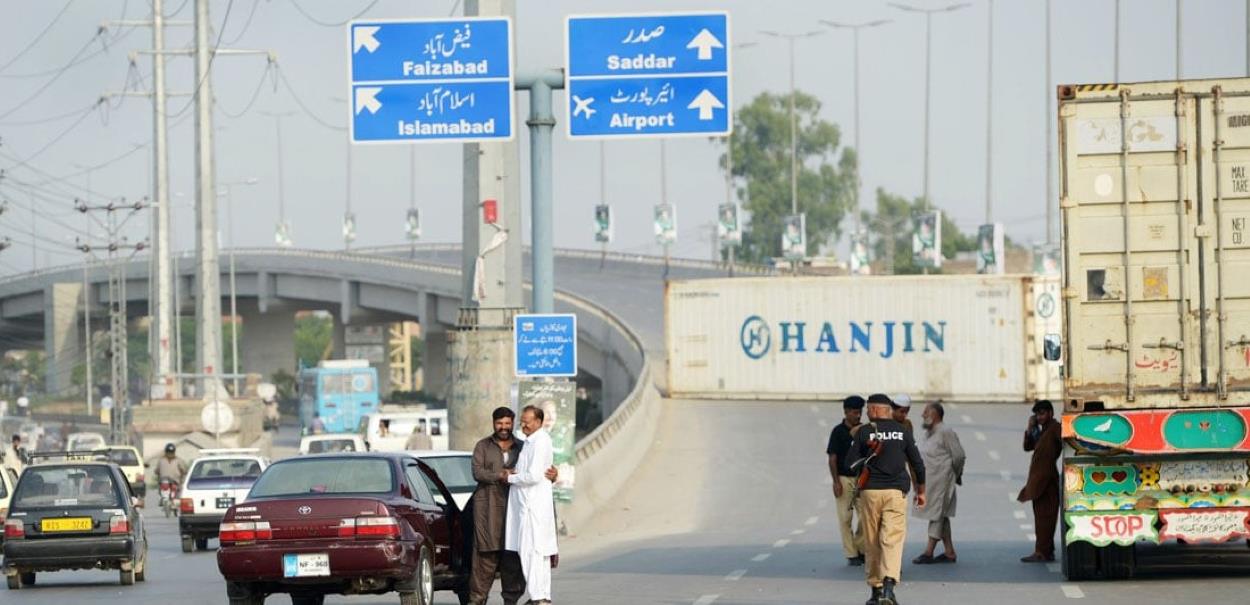The blockade of crucial routes between Rawalpindi and Islamabad has continued into its third day, significantly impacting local transportation and daily life.
Mobile phone and Metro Bus services remain suspended, intensifying the disruption for residents of the twin cities.
Due to the road blockades, major business hubs have been closed, paralyzing both cities’ economic activities and daily routines. Additionally, a severe shortage of essential items such as fruits, vegetables, milk, and poultry meat has been reported, severely affecting the availability of necessities and leaving residents stranded.
Murree Road, a major thoroughfare, has been shut down to all traffic for three consecutive days. Containers have been strategically placed across the route to enforce the blockade. The ongoing disruption at Faizabad, a critical junction, has significantly hindered public mobility. Multiple barriers have been erected between Liaquat Bagh and Faizabad, with Punjab police stationed at key points to manage the situation.
The blockade’s timing coincides with the Shanghai Cooperation Organisation (SCO) Summit, prompting legal and administrative responses. On Saturday, the Islamabad High Court (IHC) responded to a plea from local traders by ruling against unauthorized protests or gatherings in the capital during the summit. Chief Justice Aamer Farooq of the IHC bench issued a written order emphasizing that the city should not be locked down during the SCO summit scheduled for October 15 and 16.
To balance the right to protest with the need for order during the international event, the IHC has directed the Islamabad administration to designate a specific area for protests. Protesters have been instructed to gather only in the area specified by the administration to record their grievances, ensuring that the summit proceedings are not disrupted.






